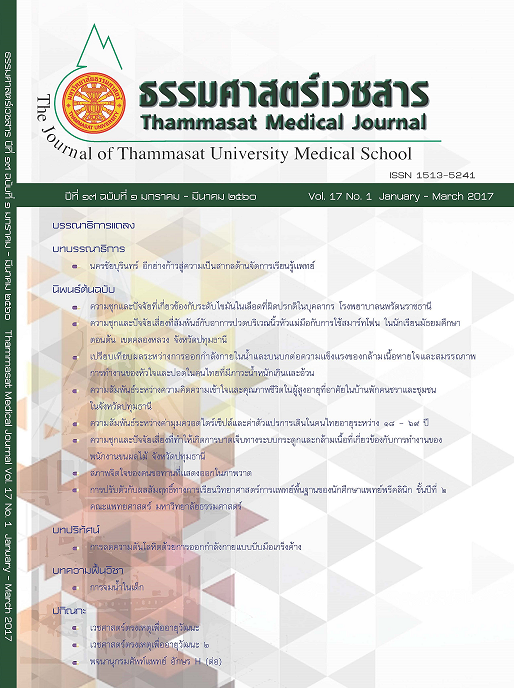A preliminary study on optimising reaction conditions to amplify the 3’UTR gene of the hepatitis C virus
Keywords:
Hepatitis C virus, Nested PC, 3'UTR, ไวรัสตับอักเสบชนิดซีAbstract
Introduction: The hepatitis C virus (HCV) is a major cause of hepatitis, cirrhosis and hepatocellular carcinoma. HCV is classified into 6 major genotypes and its detection is important for the diagnosis, therapy and for screening blood donors. Most nucleic acid detection methods for HCV use the conserved region of the 5,UTR gene. However, the 5,UTR may not be the best target for the nucleic acid detection because of the complex secondary structures. This study aimed to optimize the conditions which best amplifies the 3,UTR gene of HCV using reverse transcription-nested polymerase chain reaction (RT-nested PCR).
Method: cDNA was synthesized from HCV RNA by reverse transcription (RT) and nested PCR was performedusing six protocols (I-VI).
Result: We detected amplified products from only two protocols, V and VI.
Discussion and Conclusion: The protocols VI produced the highest yield of 3,UTR gene of HCV. However, testing should be done by using HCV infected clinical specimens.



